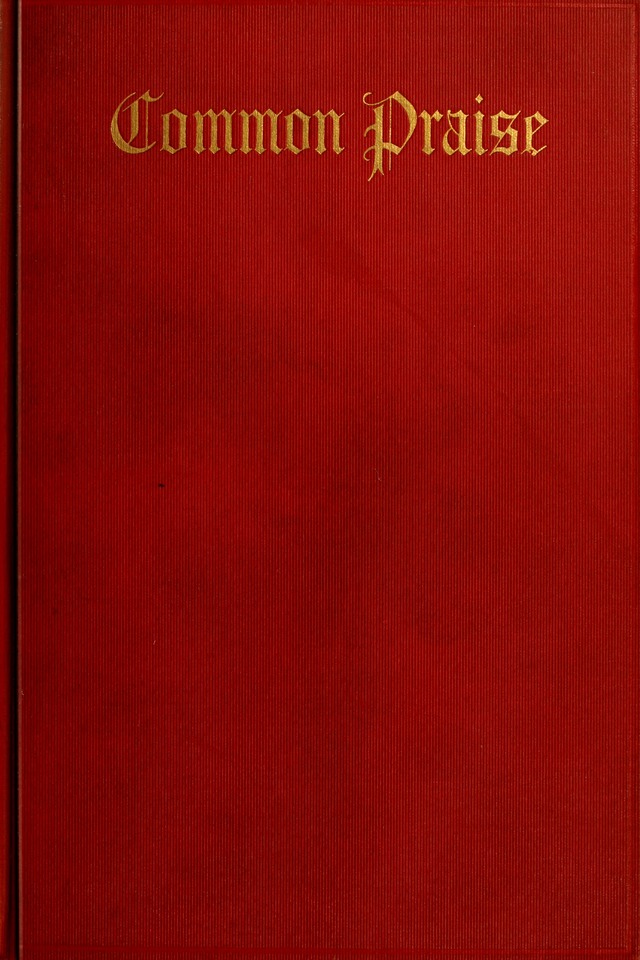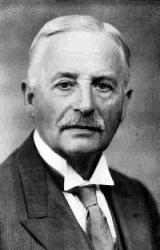Planning worship?
Check out our sister site, ZeteoSearch.org,
for 20+ additional resources related to your search.
- |
User Links
Search Results
Common Praise

Publication Date: 1913 Publisher: The H. W. Gray Co. Person Name: Frank L. Sealy Publication Place: New York Editors: Frank L. Sealy; H. W. Gray Co.
Common Praise
Nearer, my God, to Thee
Author: Sarah F. Adams Appears in 2,484 hymnals Person Name: Sarah F. Adams Used With Tune: BETHANY
Nearer, my God, to Thee
When all Thy mercies, O my God
Author: J. Addison Appears in 997 hymnals Person Name: J. Addison Used With Tune: WINCHESTER OLD
When all Thy mercies, O my God
The spacious firmament on high
Author: J. Addison Appears in 783 hymnals Person Name: J. Addison Used With Tune: CREATION
The spacious firmament on high
WINCHESTER OLD
Appears in 317 hymnals Person Name: J. Addison Tune Sources: Este's Psalter Incipit: 13321 44323 55453 Used With Text: When all Thy mercies, O my God
WINCHESTER OLD
Nearer, my God, to Thee
Author: Sarah F. Adams Hymnal: CP1913 #371a (1913) Person Name: Sarah F. Adams Languages: English Tune Title: BETHANY
Nearer, my God, to Thee
Nearer, my God to Thee
Author: Sarah F. Adams Hymnal: CP1913 #371b (1913) Person Name: Sarah F. Adams Languages: English Tune Title: HORBURY
Nearer, my God to Thee
When all Thy mercies, O my God
Author: J. Addison Hymnal: CP1913 #97 (1913) Person Name: J. Addison Languages: English Tune Title: WINCHESTER OLD
When all Thy mercies, O my God
Sarah Flower Adams

1805 - 1848 Person Name: Sarah F. Adams Hymnal Number: 371a Author of "Nearer, my God, to Thee" in Common Praise Adams, Sarah, nee Flower. born at Harlow, Essex, Feb. 22nd, 1805; died in London, Aug. 14, 1848, and was buried at Harlow, Aug. 21,1848. She was the younger daughter of Mr. Benjamin Flower, editor and proprietor, of The Cambridge Intelligencer; and was married, in 1834, to William B. Adams, a civil engineer. In 1841 she published Vivia Perpetua, a dramatic poem dealing with the conflict of heathenism and Christianity, in which Vivia Perpetua suffered martyrdom; and in 1845, The Flock at the Fountain; a catechism and hymns for children. As a member of the congregation of the Rev. W. J. Fox, an Unitarian minister in London, she contributed 13 hymns to the Hymns and Anthems, published by C. Fox, Lond., in 1841, for use in his chapel. Of these hymns the most widely known are— "Nearer,my God,to Thee," and "He sendeth sun, He sendeth shower." The remaining eleven, most of which have come into common use, more especially in America, are:—
Creator Spirit! Thou the first. Holy Spirit.
Darkness shrouded Calvary. Good Friday.
Gently fall the dews of eve. Evening.
Go, and watch the Autumn leaves. Autumn.
O hallowed memories of the past. Memories.
O human heart! thou hast a song. Praise.
O I would sing a song of praise. Praise.
O Love! thou makest all things even. Love.
Part in Peace! is day before us? Close of Service.
Sing to the Lord! for His mercies are sure. Praise.
The mourners came at break of day. Easter.
Mrs. Adams also contributed to Novello's musical edition of Songs for the Months, n. d. Nearly all of the above hymns are found in the Unitarian collections of Great Britain, and America. In Martineau's Hymns of Praise & Prayer, 1873, No. 389, there is a rendering by her from Fenelon: —" Living or dying, Lord, I would be Thine." It appeared in the Hymns and Anthems, 1841.
-John Julian, Dictionary of Hymnology (1907)
Sarah Flower Adams
Joseph Addison

1672 - 1719 Person Name: J. Addison Hymnal Number: 97 Author of "When all Thy mercies, O my God" in Common Praise Addison, Joseph, born at Milston, near Amesbury, Wiltshire, May 1, 1672, was the son of the Rev. Lancelot Addison, sometime Dean of Lichfield, and author of Devotional Poems, &c, 1699. Addison was educated at the Charterhouse, and at Magdalen College, Oxford, graduating B.A. 1691 and M.A. 1693. Although intended for the Church, he gave himself to the study of law and politics, and soon attained, through powerful influence, to some important posts. He was successively a Commissioner of Appeals, an Under Secretary of State, Secretary to the Lord Lieutenant of Ireland, and Chief Secretary for Ireland. He married, in 1716, the Dowager Countess of Warwick, and died at Holland House, Kensington, June 17, 1719. Addison is most widely known through his contributions to The Spectator, The Toiler, The Guardian, and The Freeholder. To the first of these he contributed his hymns. His Cato, a tragedy, is well known and highly esteemed. Addison's claims to the authorship of the hymns usually ascribed to him, or to certain of them, have been called in question on two occasions. The first was the publication, by Captain Thompson, of certain of those hymns in his edition of the Works of Andrew Marvell, 1776, as the undoubted compositions of Marvell; and the second, a claim in the Athenaeum, July 10th, 1880, on behalf of the Rev. Richard Richmond. Fully to elucidate the subject it will be necessary, therefore, to give a chronological history of the hymns as they appeared in the Spectator from time to time.
i. The History of the Hymns in The Spectator. This, as furnished in successive numbers of the Spectator is :—
1. The first of these hymns appeared in the Spectator of Saturday, July 26, 1712, No. 441, in 4 stanzas of 6 lines. The article in which it appeared was on Divine Providence, signed “C." The hymn itself, "The Lord my pasture shall prepare," was introduced with these words:—
"David has very beautifully represented this steady reliance on God Almighty in his twenty-third psalm, which is a kind of pastoral hymn, and filled with those allusions which are usual in that kind of writing As the poetry is very exquisite, I shall present my readers with the following translation of it." (Orig. Broadsheet, Brit. Mus.)
2. The second hymn appeared in the Spectator on Saturday, Aug. 9, 1712, No. 453, in 13 st. of 4 1., and forms the conclusion of an essay on " Gratitude." It is also signed " C," and is thus introduced:—
“I have already obliged the public with some pieces of divine poetry which have fallen into my hands, and as they have met with the reception which they deserve, I shall, from time to time, communicate any work of the same nature which has not appeared in print, and may be acceptable to my readers." (Orig. Broadsheet, British Museum)
Then follows the hymn:—"When all Thy mercies, 0 my God."
3. The number of the Spectator for Tuesday, Aug. 19, 1712, No. 461, is composed of three parts. The first is an introductory paragraph by Addison, the second, an unsigned letter from Isaac Watts, together with a rendering by him of Ps. 114th; and the third, a letter from Steele. It is with the first two we have to deal. The opening paragraph by Addison is:—
“For want of time to substitute something else in the Boom of them, I am at present obliged to publish Compliments above my Desert in the following Letters. It is no small Satisfaction, to have given Occasion to ingenious Men to employ their Thoughts upon sacred Subjects from the Approbation of such Pieces of Poetry as they have seen in my Saturday's papers. I shall never publish Verse on that Day but what is written by the same Hand; yet shall I not accompany those Writings with Eulogiums, but leave them to speak for themselves." (Orig. Broadsheet, British Museum
Joseph Addison
Walter G. Alcock

1861 - 1947 Person Name: W. G. Alcock Hymnal Number: 607 Composer of "GRATIAS AGIMUS" in Common Praise Walter Galpin Alcock United Kingdom 1861-1947. Born at Edenbridge, Kent, England, the son of the superintendent of the Metropolitan Police Orphanage at Fortescue, Twickenham. He was musically inclined. He won a scholarship to the National Training School for Music at age 15. There, he studied composition with Arthur Sullivan and organ with Sir John Stainer. After several brief posts at Holy Trinity Sloan Street and St Margaret’s Westminster, he was appointed Organ Professor at the Royal College of Music, London, in 1893. That year he married Naomi Blanche Lucas, and they had six daughters and a son: Naomi Judith, Dorothy Grace, Constance Marjorie, Ruth Blanche, Lucy Rachel, Kathleen Stainer, and Richard. In 1896 he was assistant organist of Westminster Abbey and concurrently organist and master of the children of the Chapel Royal (1902-1916). He became organist and Master of the Choristers of Salisbury Cathedral (1916-1947). He also oversaw a strictly faithful restoration of the famous Father Willis organ. He would not allow parts of the organ being refurbished to leave the cathedral, lest an unauthorized tonal alteration might be made without his approval, but he did work with the grandson of Father Willis, Henry Willis III, to modernize the organ’s action. Alcock had the distinction of playing at the coronation of three kings: Edward VII (1902); George V (1911); and George VI (1937). Between 1917-1924 he, with Harford Lloyd, juggled the post of Director of the Madrigal Society, assisting the ageing Sir Frederick Bridge, who had been appointed in 1888. Alcock was knighted in 1933 for services to music. He was a distinguished teacher, whose published material for organ students is still thought of value. He taught several notable pupils. He had the hobby of constructing a model railway at Salisbury on which choir boys could take rides. He was said to have all his musical talent and dexterity at the organ when age 80, that he had at age 50, and with greater maturity and mellowness. He died at age 85. His funeral service was at Salisbury Cathedral.
John Perry
Walter G. Alcock


 My Starred Hymns
My Starred Hymns


